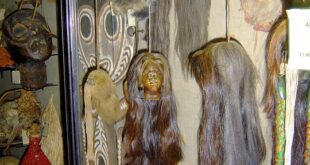How To Discover Your Roots with Biological Anthropology
Have you ever wondered about your origins, where your ancestors came from? Many people simply don’t know or have a misapprehension about their ethnic heritage due to limited family knowledge handed down through several generations. Modern technology has made it easier than ever before to unearth such personal vital data. Now, thanks to the contributions of biological anthropology, deciphering and understanding one’s ancestral roots has become more exciting and more accessible.
Biological Anthropology Defined
The study of humans from an evolutionary and biological viewpoint is known as Biological Anthropology. It is a social and physical study of how biological developments have influenced and been influenced by our surroundings’ social, historical, and physical features. By learning about past humans’ physiology and behavior, biological anthropologists can understand what life was like for their human ancestors.
The Roles of Mitochondrial and DNA Testing
There are many kinds of genealogy testing, but Mitochondrial and DNA tests are the leading instruments that scientists use in unraveling ethnic history. With DNA genetic testing, scientists isolate DNA series and contrast it to information archived in enormous databases. With hundreds of diverse hereditary identifications stored throughout history, these central server databases allow you to know who has a similar DNA to yours and who might be part of your family.
Mitochondrial DNA relies on bodily tissues scraped from the cheek of the mouth. Researchers can by this means create a detailed dimensional distribution showing how an individual’s family tree sprouted from itself; the species typographical mistakes can honestly be easily tracked down through mitochondrial DNA links.
Family Records and Sourcefacts Mining
For family researchers, genealogy logs are an excellent place to start gathering your ancestral tree. Start with what you already know such as birthplaces of parents and grandparents (country and/or state) as well as professions, known family roots, burial sites, religious denominations, etc. One little detail you might learn would assist in unraveling a significant individual’s story. Find factual government records, journals, lineage spotlights, correspondences, and genealogical tidbits that might initially surprise the wider family through genealogical research websites.
Meeting Distant Relations
Another pleasure of biological anthropology is meeting far-flung offspring. Discover long lost cousins who you did not know existed or might not even have suspected who is in your genealogical records. Based on the classification of the allelic markers of familiar genes, you may establish contacts with others and enlarge your biological family. This can be a significant experience that provides a deeper appreciation for one’s personal history and get an extensive insight into themselves regarding culture, ethnicity, psychology, and sociology.
Embarking on the Trace of Your Ancestry
Studying your origins with the aim of capturing and recording a thorough family tree is an enchanting process. Beyond being fun, the trip may not be for everybody once it becomes a comprehensive entanglement with proven hoard records, forensic functions, mathematical referrals, etc. The reward of delving into your family’s background means understanding self-identification that helps to optimize your viewpoints about yourself profoundly.
Conclusion
Exploring your ancient life stories and resolving clues about one’s world history is a thoroughly physical experience – and it is developing all the time. Define the merits of biological anthropology as a link acquisition choice, and step into the enthralling realm of obtaining personal real-life experiences that exist beyond present-day internet advances.
 Mind Uncharted Explore. Discover. Learn.
Mind Uncharted Explore. Discover. Learn.

